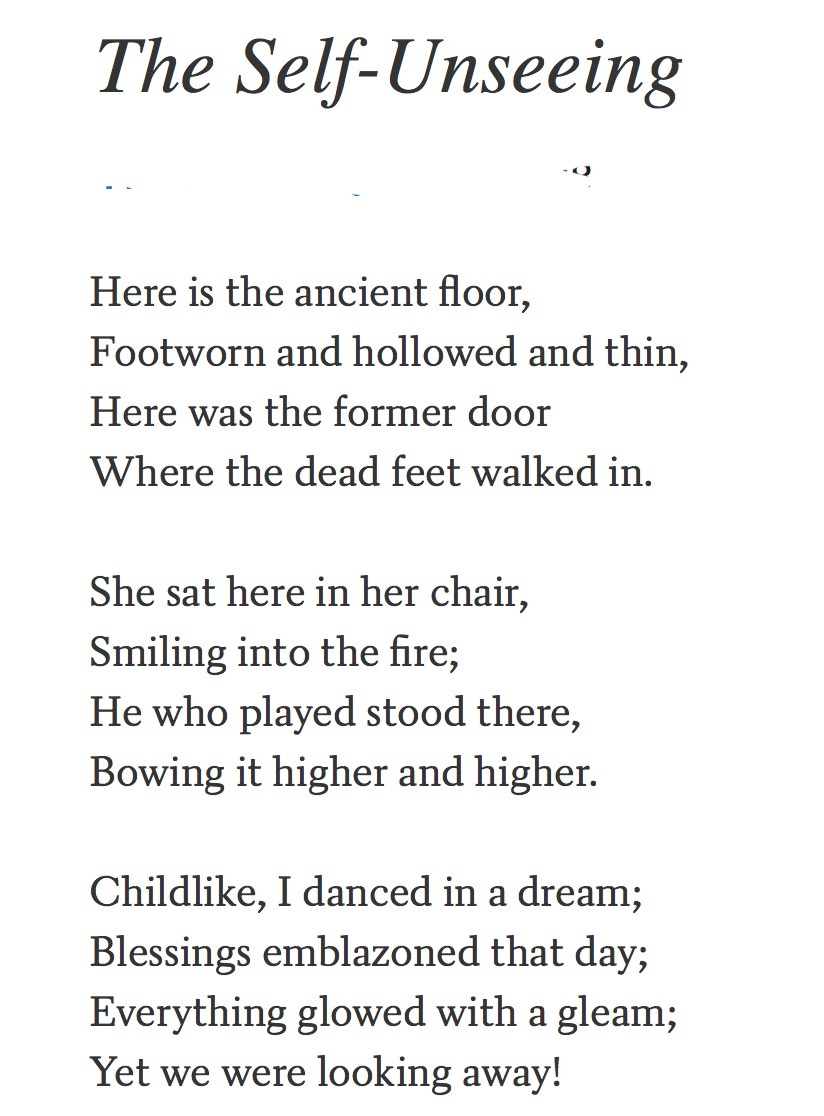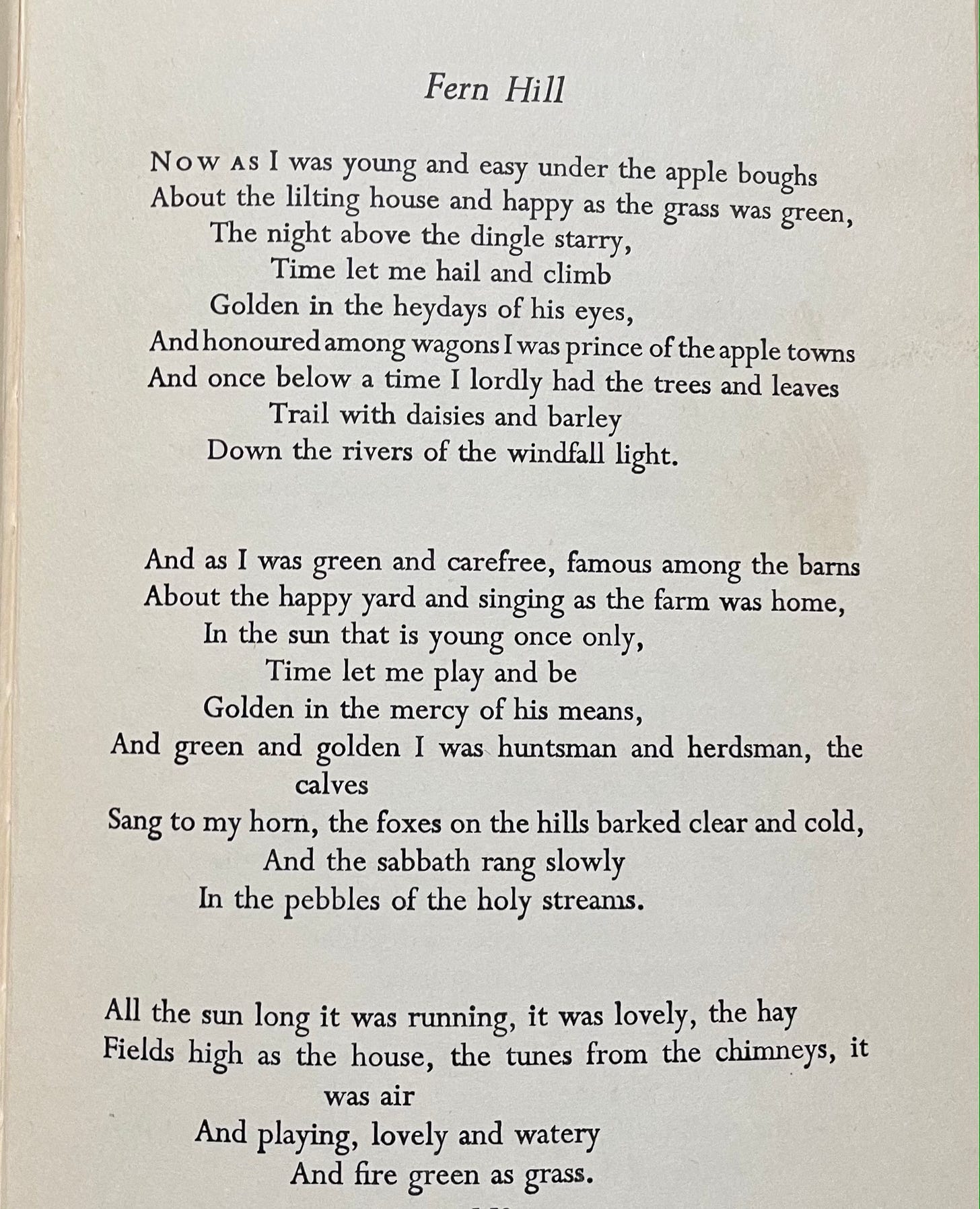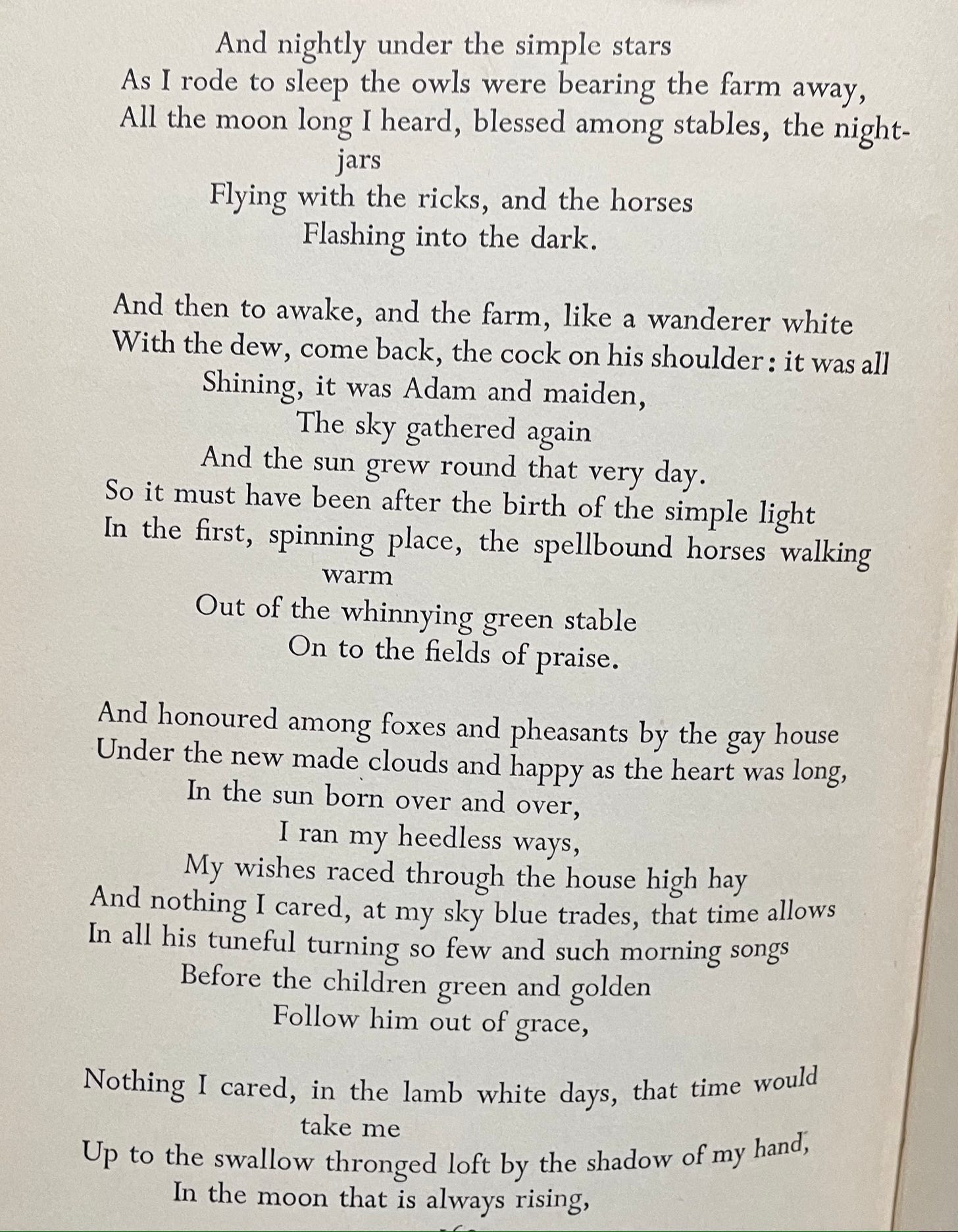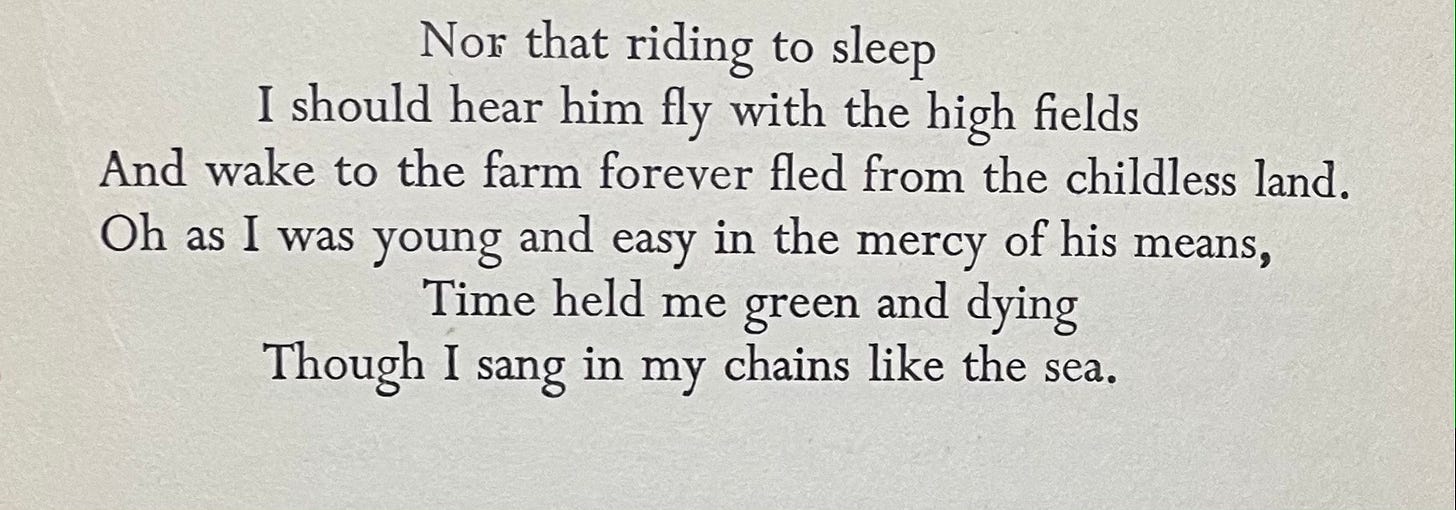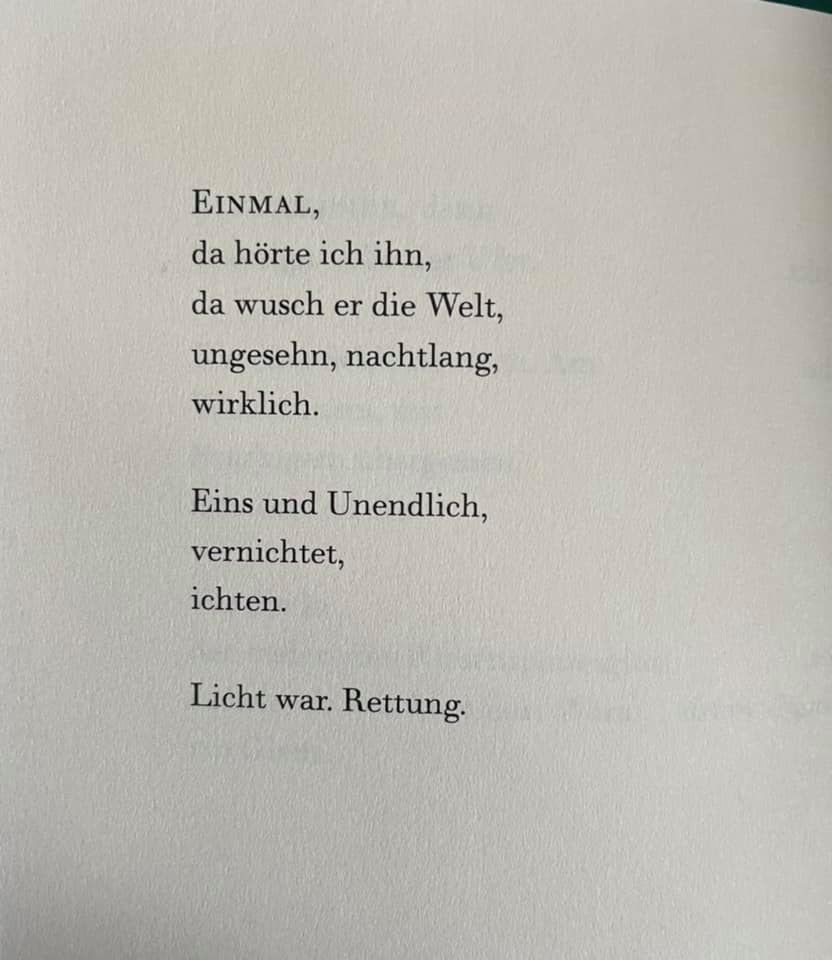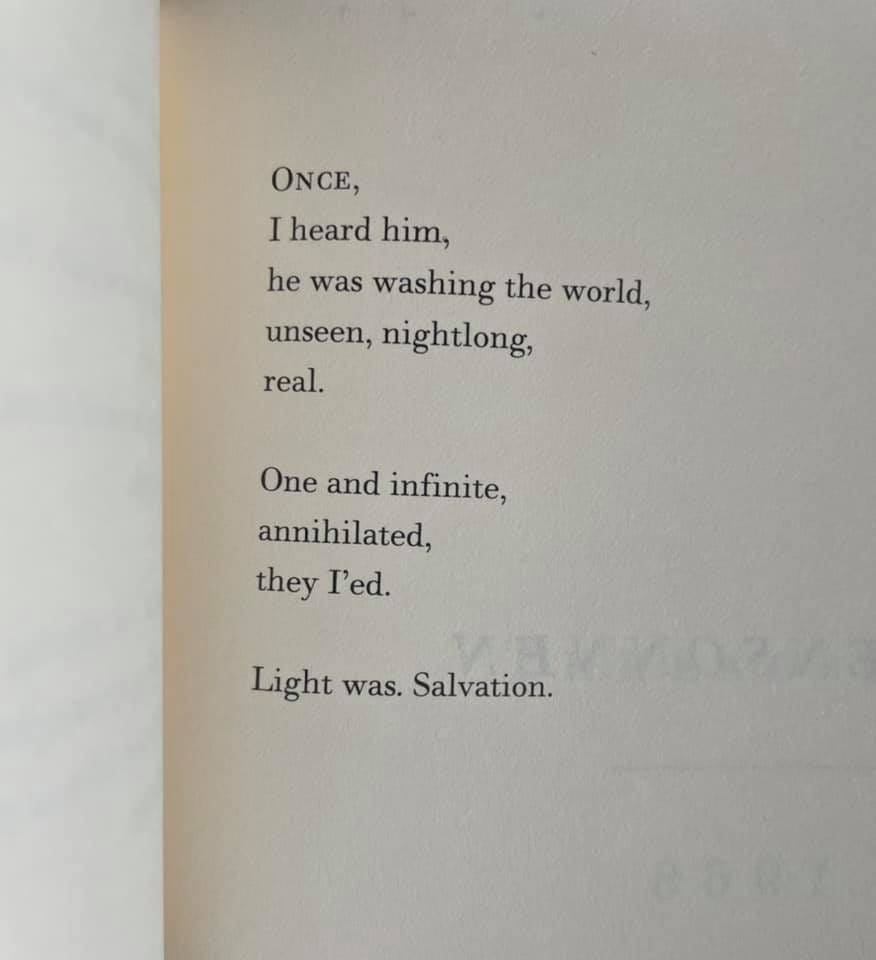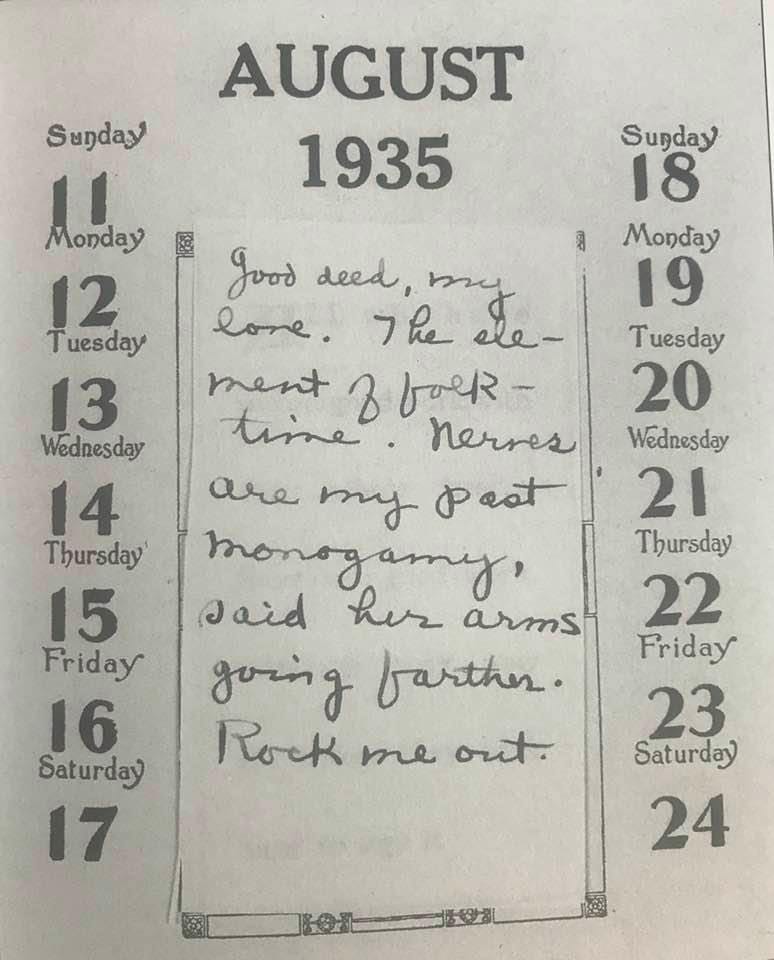"I sang in my chains like the sea"
Benjamin, Hardy, Whitman, Thomas, Celan, Boland, Niedecker, Zinsser
Walter Benjamin:
The past can be seized only as an image which flashes up at the instant when it can be recognized and is never seen again.
Thomas Hardy:
Walt Whitman:
Dylan Thomas:
Paul Celan (trans. John Felstiner):
Eavan Boland:
Exclusivity is not a practice that has much value in poetry, so I think that the idea that you could challenge the past, that you could make it your own and write your own name in it seemed to me important. If not you’re going to feel that your existence as a poet is determined by that past, which means you have the next step to considering that you can only be legitimized by that. That’s a dangerous step for a poet, and it means they could be in the presence of a very intimidatory sense of the past.
Lorine Niedecker:
Good deed, my / love. The ele- / ment of folk- / time. Nerves / are my past / monogamy, / said her arms / going farther. / Rock me out.
William Zinsser:
My final reducing advice can be summed up in two words: think small. Don’t rummage around in your past—or your family's past—to find episodes that you think are “important” enough to be worthy of including in your memoir. Look for small self-contained incidents that are still vivid in your memory. If you still remember them it’s because they contain a universal truth that your readers will recognize from their own life.
About Sean Singer
Sean Singer Editorial Services
Subscribe to The Sharpener
The paid-subscriber version of The Sharpener includes craft pieces on literary fixes, deep dives into poets on their birthdays and memorials, information about professional literacy and labor issues for writers, and detailed citations and analyses of the poems I’m reading.




